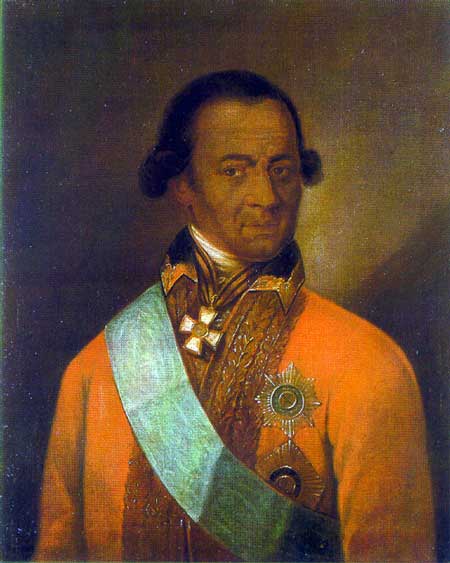The Abram Gannibal Project: Collaborative research in applied algebra and geometry in Africa
The Abram Gannibal project aims to establish collaborations between UK mathematicians and emerging Sub-Saharan African scientists and their research groups to tackle a range of problems arising in technological challenges relevant to the African development context. Our objective is to use theoretical approaches to attack research problems arising in applications. Our focus is on collaborative research in applied algebraic and arithmetic geometry.
For information and further details, and to register for any of our activities, please send an email to
agp[at]maths[dot]ox[dot]ac[dot]uk

Activities
-
COW Algebraic Geometry Seminar on 10 March at Imperial
-
Workshop at Chicheley Hall, 27 Feb-3 March 2022
-
Watch this documentary about Abram Gannibal
News of people associated with the project
-
July 2021: Sarah Nakato (Uganda / Graz University of Technology, Austria) is on the Local Organising Committee of a conference on Rings and Polynomials in Graz.
-
May 2021: Elizabeth Mrema (University of Dar es Salaam) starts her DAAD-funded PhD studies at Stellenbosch University on algebra and algebraic geometry.
-
May 2021: Tilahun Abebaw (Addis Ababa, Ethiopia) recognised as ISP Alumnus of the Quarter.
-
October 2020: Jared Ongaro (Nairobi, Kenya) recognised as ISP Alumnus of the Quarter.
-
September 2020: Caroline Namanya (Makerere University, Uganda) awarded IMU Breakout Graduate Fellowship for her PhD studies.
-
August 2020: Geoffrey Mboya (Oxford, UK/Nairobi, Kenya) starts mentoring programme Mfano Africa, a Mathematical Sciences mentorship program targeting African students.
-
August 2020: Praise Adeyemo (Ibadan, Nigeria) invited to give a lecture at the Zoom Algebraic Geometry Marathon on 1 September 2020.
See the list of talks at the Marathon here.
-
July 2020: Sarah Nakato (Uganda) defends her doctoral dissertation at Graz University of Technology.
Sarah's doctoral thesis is entitled Factorization theory in rings of integer-valued polynomials on Dedekind Domains. Her research was supervised by Dr Sophie Frisch and Dr Roswitha Rissner.
-
July 2020: Ali Traore (Mali) receives a Stephen Hawking Fellowship at AIMS-South Africa.
Mathematical activities elsewhere in Africa during COVID-19
AfMS: African Mathematics Seminar
AIMS Virtual Research Seminars
Mfano Africa, a Mathematical Sciences mentorship program targeting African students
Past Activities
-
The 2021 Nairobi Workshop in Algebraic Geometry
-
Online seminar and workshop, Wednesday 18 Nov 2020
16.30-18.30pm (GMT+1 Ibadan) 18.30pm-20.30pm (GMT+3 Nairobi)
Topic: Introduction to algebraic biology
Presenter: Matthew Macauley, Clemson University
Slides and worksheets for the session.
SageMath can be freely downloaded from here. It can be used online on a browser here.
Background reading: a survey and a longer piece.
Polymake online seminar and workshop, Tuesday 6 October 2020 10am-12noon (GMT+1)
Topic: Polyhedral geometry and polymake
Presenter: Dominic Bunnett, TU Berlin
This will be a session about polymake, an open source software for research in polyhedral geometry. It deals with polytopes, polyhedra and other objects.
Abstract: While being a research field in its own right, polyhedral geometry plays an important role in many areas of mathematics, both pure and applied. Including linear and combinatorial optimisation, algebraic geometry and topology. We introduce the basic objects in this field (polytopes and cones), some of their properties and see where they appear in applications. Then we give an introduction to `polymake’, an open-source software for research in polyhedral geometry. We show how to use this software to do computations, answering questions which would be impossible by hand. Abstract: While being a research field in its own right, polyhedral geometry plays an important role in many areas of mathematics, both pure and applied. Including linear and combinatorial optimisation, algebraic geometry and topology. We introduce the basic objects in this field (polytopes and cones), some of their properties and see where they appear in applications. Then we give an introduction to "polymake" an open-source software for research in polyhedral geometry. We show how to use this software to do computations, answering questions which would be impossible by hand.
Polymake can be freely downloaded from here.
You can try it online at Polymake online box.
List of useful Polymake commands for the exercises.
Exercises on polytopes.
-
SageMath online seminar and workshop, Wednesday 9 September 2020 10am-12noon (GMT+1)
This was a session about graphs and the computation of graph invariants in Sage.Topic: Graphs and SageMath
Presenter: Agnese Barbensi, University of Oxford
Exercises on graphs.
List of useful SageMath commands for the exercises.
SageMath can be freely downloaded from here. It can be used online on a browser here.
-
SageMath online seminar and workshop, 22nd July 2020 10am-12noon (GMT+1)
Topic: Knots and SageMath
Presenter: Agnese Barbensi, University of Oxford
Besides their intrinsic theoretical interest, knots and graphs have been fundamental mathematical tools used in a wide variety of applications, ranging from Biology to Social Sciences. We will give the basic definitions and invariants, and we will discuss some of the real life applications involving knots. We will then introduce SageMath, a free open-source mathematics software system, and we will see how to compute knot invariants with it.Exercises on knots.
List of useful SageMath commands for the exercises.
SageMath can be freely downloaded from here. It can be used online on a browser here.
-
Macaulay2 online Seminar and Workshop, 19th June 2020 10am-12noon (GMT+1)
Topic: Further discussions around the algebra software Macaulay2
Presenter: Diane Maclagan, University of Warwick
-
Macaulay2 online Seminar and Workshop, 27th May 2020 10am-12noon (GMT+1)
Topic: Collaborative introduction to the algebra software Macaulay2
Presenter: Diane Maclagan, University of Warwick
To download Macaulay2 freely click here, and follow the instructions for your system.
Instructions for Windows 10 users can be found here.
To use Macaulay2 online click here.